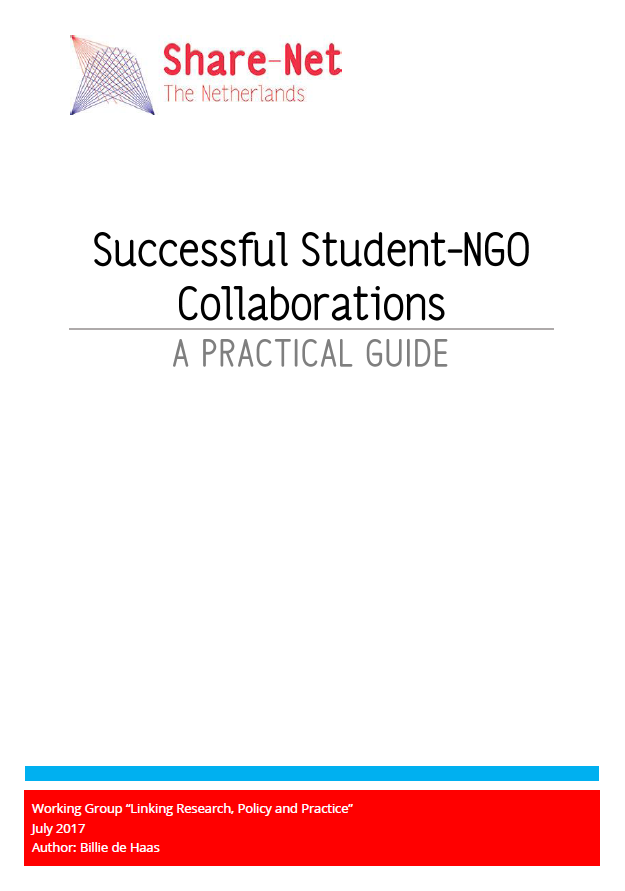Successful Student-NGO Collaborations – A Practical Guide
This is a practical guide for successful student-NGO collaborations.
Every student-NGO collaboration is different because:
1) Students come from different educational programmes with different end terms, interests and timing;
2) The purpose of the collaboration may differ. For instance, NGOs may create internship vacancies based on their organisational research needs for which students can apply; the student’s research may be part of a bigger research project; or students may come up with a research topic themselves;
3) The number of stakeholders (Figure 1) may vary. Usually, student-NGO collaborations involve at least three stakeholders: the student, the university/supervisor and the NGO. When the student intends to do fieldwork, the number of
stakeholders may increase as partner NGOs and the communities under study become involved as well.
Due to the involvement of various stakeholders, student-NGO collaborations may pose various challenges, such as:
➢ Differences between the academic and the NGO way of working, for instance with regard to the research purpose, the time frame for conducting research, and the required type of knowledge output;
➢ Differences between the university and NGO supervisors in handling ethical concerns and responsibilities, such as safety concerns for students who do fieldwork abroad;
➢ Differences about ownership of data and intellectual property rights; and
➢ Budget allocations.
When such challenges arise, there is the pitfall of students feeling caught in between the expectations and requirements of the stakeholders involved because they feel that they need to balance those various expectations.
To encourage beneficial collaborations for all stakeholders involved, this practical guide proposes a set of guidelines that can be used by NGOs and universities to streamline their communication by making mutual assumptions, expectations and challenges explicit at the start of a new collaboration. Because there are many types of student-NGO collaborations, this practical guide does not provide a standardized protocol. Rather, the guide addresses potentially relevant topics and includes references for more information. The stakeholders are recommended to discuss these topics together and to incorporate the outcomes into an agreement at the start of their collaboration (see Annex 2. Format for drafting an agreement).
More information
For the complete checklist Share-Net Guide to Successful Student NGO Collaborations in pdf click here.
For a Format 2017 Share-Net Guide to Successful Student NGO Collaborations in Word click here.
